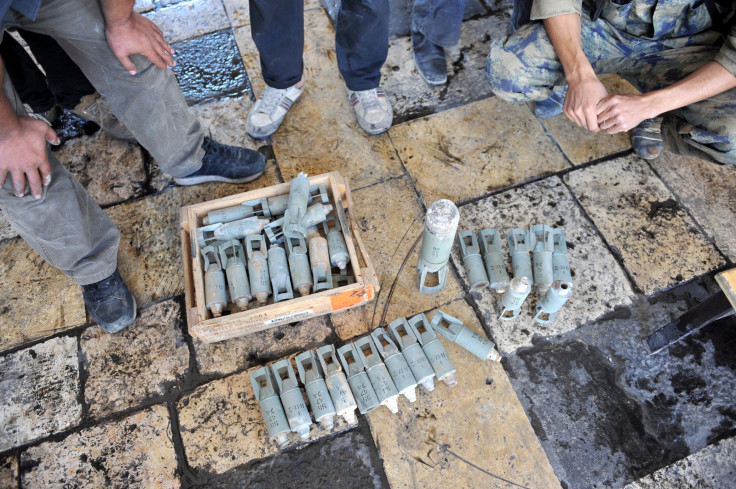UK defence chief Michael Fallon claims British pressure made Saudi Arabia renounce use of cluster bombs
Saudi Arabia admitted using cluster munitions in Yemen, but also pledged to stop using the weapon in the future.
British defence secretary Michael Fallon was called to defend the relationship between the UK and Saudi Arabia as the Gulf country admitted using UK-manufactured cluster bombs in the conflict in Yemen.
A statement released on 19 December, to Saudi State news agency SPA, said the Saudi-led Arab coalition used cluster munitions in the conflict, but also decided to stop using the weapons in the future.
"We oppose the use of cluster munitions, we have made that very clear to the Saudi authorities," Fallon told the House of Commons. "As a result of our pressure, we now have an undertaking that Saudi Arabia will not use this weapons," he added.
Cluster bombs were outlawed in an international treaty that was signed by Britain and came into force in 2010, with several countries – including the UK – destroying the weapons' stockpiles in the following years.
The Saudi statement should not come as a surprise to the minister, as the British government's own analysis found that Saudi Arabian forces have used UK cluster bombs in their bombardment of Yemen.
In May, an Amnesty International investigation found that cluster munitions made in the UK, in the 1970s, were being used in Yemen in the latest conflict, but UK Minister of Defence Procurement Philip Dunne and Fallon denied any UK-made cluster munitions had been used in Yemen. Fallon told MPs that his statement was based on the information the Saudis had at the time of the Amnesty probe.
The SNP's defence spokesperson Brendan O'Hara was one of the MPs calling on the UK government to question the relationship with Saudi Arabia in light of allegations of war crimes in Yemen.
"Since the start of the military campaign in Yemen, there have been repeated reports of the indiscriminate bombing of hospitals and funerals. Given the UK's military role in the Saudi war room of operations and now the confirmation of the use of outlawed UK-made cluster bombs, then there are questions to answer," he said.

The Yemeni prime minister of the rebel Houthi government Abdel-Aziz bin Habtour accused Britain of "participating in the bombing of Yemen people" and profiting from the humanitarian crisis.
The UK government repeatedly said that only strong evidence of international law violations would change their position on arms sales. The US, instead, announced on 13 December it was limiting arms exports to Saudi Arabia over concerns of civilian killings.
Fallon reminded MPs that the UK government sees Saudi Arabia as a key ally in the fight against terrorism, and also as an important investor and trade partner.
"Saudi Arabia is on the cusp of major reform programme of its economy and its society," Fallon said, reiterating that there is no intention of shunning Saudi Arabia through sanctions or boycotts.
Activists remain concerned about the state of human rights in the country. Saudi Arabia has executed at least 153 people so far in 2016, nearing last year's record high of 158, according to figures collated by human rights organisation Reprieve.
© Copyright IBTimes 2025. All rights reserved.






















